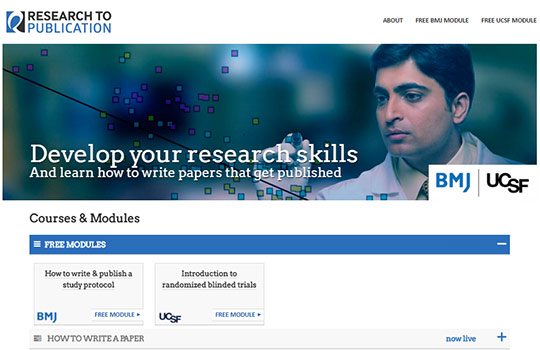People do health research for many different reasons. Most, we hope, try to answer questions that are important to patient care or policy, with a chance of informing service development or improving health. This is particularly urgent in lower income countries, where there is still not nearly enough locally derived evidence to drive and support healthcare development and improvement.
Yet research too often starts with suboptimal questions or loses its way, leading to rejection or retraction from journals and skewing the evidence base for health. One study, for instance, showed that, among 312 papers retracted from Medline, 40% were withdrawn owing to errors or non-replicable findings.
How can we meet these challenges, and ensure that the resources for health research yield the greatest possible value? Many health researchers get some advice on how to use statistics and write papers, but relatively few, worldwide, receive enough support from their institutions to develop good research questions, use the best study designs, and properly report studies’ methods and results.
So that’s why BMJ developed the Research to Publication elearning programme, to help research institutions in Africa, South Asia, Latin America, Europe, and beyond to build capabilities for trustworthy, publishable, and usable health research. Systematic analysis suggests that capacity development for clinical research depends on five main types of competency and, of these, professional skills and scientific thinking are critically important. Research to Publication offers the tools to develop professional skills and scientific thinking—ultimately contributing to the development of capacity to conduct high quality, relevant clinical research.
The BMJ and Pfizer’s Independent Grants for Learning and Change (IGLC) are pleased to announce the launch of two competitive grant programmes intended to encourage research and healthcare institutions to apply for access to the Research to Publication e-learning modules, the purchase of which will be funded by Pfizer.
The mission of Pfizer’s IGLC Programme is to partner with the global healthcare community to improve patient outcomes in areas of mutual interest through support of measurable learning and change strategies. In partnering with the BMJ to provide access to Research to Publication, Pfizer is seeking to help improve both the conduct and publication of clinical research in medical, dental, nursing, allied health, and/or pharmacy professional schools and in other academic institutions and healthcare settings.
The two competitive grant programmes will be a call for applications from institutions in low and low-to-middle income countries in Europe, Africa, and the Middle East (apply here) and another call for applications from institutions in the UK (apply here).
Applicants will need to show that they have:
- a mission related to healthcare improvement
- clearly demonstrable needs for the training offered by Research to Publication (and, in the LMICs track, priority will be given to institutions in the lowest income countries)
- a detailed implementation plan explaining how the training will be utilised and how individuals will be reached and supported to ensure that they can access the programme
- a sizeable number of current or potential researchers (applications should specify whether access to Research to Publication is needed for up to 50, 100, 150, 200, or 250 learners – or for more than 250 if the need is demonstrable)
Grant applications will be considered by one of two independent, expert and multidisciplinary external review panels, one for each call, who will be assessing the submissions and awarding the grants enabling one year’s full access to the Research to Publication. Pfizer will fund institutional subscriptions to Research to Publication on behalf of the successful organisations via an educational grant provided to the BMJ, with access then granted direct by BMJ.
Although Pfizer will ask for reports to be shared publicly about the impact of Research to Publication, the company will have no influence over any aspect of any resulting studies. No funds will be transferred to the organisations to whom access to Research to Publication is awarded.
Research to Publication is already being used by universities and medical schools in Africa, South Asia, Latin America, as well as in the UK and Australia. With this BMJ and Pfizer partnership we can reach many more.
Trish Groves has been an editor at The BMJ since 1989 and is the editorial lead for Research to Publication.
Competing interests for TG: As well as my roles at The BMJ and Research to Publication I am Editor in chief of BMJ Open and Director of academic outreach at BMJ. Both The BMJ and BMJ Open publish research with open access, levying article publishing charges. Part of the revenue for BMJ (the company) comes from drug & device manufacturers through advertising, reprint sales, & sponsorship. My annual bonus scheme is based partly on the overall financial performance of both BMJ and Research to Publication.
Berkeley Phillips has an NHS background in cardiology and internal medicine and joined Pfizer’s Medical Department in 2001, becoming Medical Director in 2010.
Competing interests for BP: I am an employee of Pfizer.
